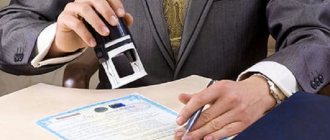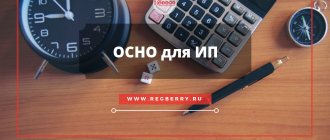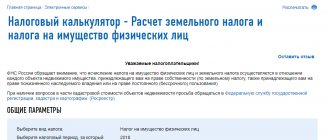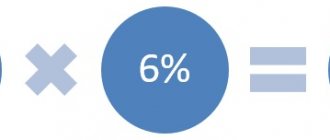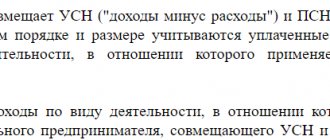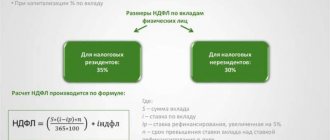When is it profitable to work with a VAT payer?
If an entrepreneur pays VAT, then other companies and individual entrepreneurs, who are also payers of this tax, will benefit from cooperating with him. This is due to the possibility of applying a tax deduction. Thus, the buyer can reduce his own tax payable to the budget. Therefore, medium and large companies prefer to work with contractors who pay VAT.
If an individual entrepreneur applies a special regime, then his buyers will not be able to make a tax deduction. It will be unprofitable for VAT payers to work with such an entity. Therefore, some of them may refuse to cooperate, while others will demand a reduction in the cost of the contract. Thus, if an individual entrepreneur is a VAT payer, then the circle of his counterparties will be much wider.
Selecting a tax regime
The payment of VAT by organizations and entrepreneurs is presupposed by the basic taxation system (OSNO). It is considered that it is automatically applied by any individual entrepreneur if he has not notified the Federal Tax Service about the choice of a special tax regime. In other words, if an individual entrepreneur registered and did not submit notifications about the application of the special regime, then he is obliged to pay VAT.
If an entrepreneur prefers not to deal with the payment of this tax, he can choose a special regime suitable for his activities:
- simplified taxation system (STS), also known as “simplified” (the tax rate for individual entrepreneurs will be 6% or 15%, depending on whether he takes into account expenses);
- payment of a single tax on imputed income (UTII) or “imputed income”;
- patent taxation system (PTS);
- payment of the unified agricultural tax (UST).
Tax regimes can be combined, but not all. For example, an individual entrepreneur may be on the OSNO or the simplified tax system, but apply UTII or PSN for certain types of activities.
What it is
Value added tax is a component of tax collections to the country's treasury. When setting your own price, the seller must pay a percentage of the difference between the new price and the purchase price from the supplier. Moreover, VAT is charged not only on goods, but also on the provision of services.
The following VAT rates are accepted in Russia:
| The general percentage for most goods and services is | 18% |
| When selling medicinal products, food products from a certain category | 10% |
| Selling goods through export | 0% |
The collection of VAT is provided for by the selected taxation regime. Many people try to avoid including this fee due to the complex calculations involved.
Individual entrepreneur taxes on OSNO
So, having registered and not choosing a special regime, the entrepreneur is on the general tax system. What taxes does an individual entrepreneur pay on OSNO? The main payments associated with business activities are:
- VAT on the sale of goods and services that are subject to taxation;
- Personal income tax is a tax that an entrepreneur pays on his income;
- Personal income tax as a tax agent for employees, if they are on staff (except for the individual entrepreneur himself).
Do not forget that an entrepreneur is an individual. In this regard, taxation of individual entrepreneurs with VAT involves payment of:
- property tax if he is the owner of an apartment, house or dacha;
- transport tax if there is a vehicle;
- land tax when owning a plot;
- water tax (as an individual) for the use of a well or well.
But that is not all. What taxes an individual entrepreneur pays also depends on the area in which he operates. The following payments are associated with industry specifics:
- excise taxes - they are paid upon the sale of excisable goods;
- Mineral extraction tax - when carrying out activities related to mineral resources;
- water tax (as an individual entrepreneur) - if water is withdrawn for business activities;
- fees for hunting and fishing.
Who is exempt from VAT
In accordance with Art. 145 of the Tax Code of the Russian Federation, small enterprises and individual entrepreneurs can be exempt from paying VAT. Also, VAT is not paid by taxpayers who work under special regimes, as well as those who sell certain types of goods and services.
Those businessmen whose revenue for the last three months does not exceed 2 million rubles may be exempt from paying VAT. This benefit does not apply to those who sell excisable goods and those who import goods into the territory of the Russian Federation. The benefit can be used for 12 months. Then it is possible to extend it if conditions allow it.
Note! To be exempt from paying VAT, you can switch to one of the types of special regimes. They are indicated in paragraph 2 of Art. 18 Tax Code of the Russian Federation: Unified Agricultural Tax, USN, UTII, PSN.
However, for some operations, VAT exemption does not apply to special systems:
- goods are imported into Russia;
- fulfills the duties of a tax agent;
- operations are carried out on the basis of a simple partnership agreement.
Note! To switch to a special tax system, you must meet certain requirements.
The Tax Code also provides a list of certain types of transactions for which exemption from the tax in question occurs:
- sale of goods and services that are socially significant for society;
- provision of services in the field of culture and art;
- financial services;
- products and services sold by a public organization of disabled people, etc.
In Art. 149 of the Tax Code contains a complete list of these types of services.
The VAT exemption can be waived. However, the following should be taken into account:
- when the exemption is associated with low turnover, it is possible to abandon use no earlier than after a year;
- when using special taxation systems, waiver of exemption is impossible;
- refusal of exemption is possible only for those operations described in Art. 149 of the Tax Code of the Russian Federation. The refusal can be issued for no less than 1 year.
The use of VAT exemption is influenced by a number of factors. They are related to the status of the person, the type of his activity and the scale of the business. Exemption can be granted to individual entrepreneurs as a whole, or for certain types of products or services.
In some cases, it is more profitable to refuse to apply the benefit. In this situation, all financial indicators should be taken into account.
Who is exempt from VAT
Individual entrepreneur with VAT: pros and cons
So should an entrepreneur become a VAT payer? In each case, this issue must be resolved individually. The advantages of working with this tax include the absence of restrictions in the choice of counterparties. As a payer of this tax, an individual entrepreneur can count on cooperation even with the largest buyers. After all, they usually use OSNO and want to claim input VAT for deduction.
The disadvantages are also obvious - you will have to calculate and pay taxes, keep records and file returns. And its calculation and accounting in some places is difficult for beginners. In addition, tax authorities are especially sensitive to VAT-related violations and carefully check reporting. After all, this tax is one of the significant sources of budget funds. With the slightest flaws, not only your own, but also on the part of the counterparty, there is a risk that the Federal Tax Service will not recognize the deduction. And perhaps you will have to defend your right to it in arbitration court.
If an individual entrepreneur in a special regime decides to pay VAT
So, after weighing all the pros and cons, the individual entrepreneur decided to switch to the basic taxation system. There is one limitation for this - you can voluntarily change the tax regime only from the next calendar year. If an individual entrepreneur uses the simplified tax system, then he must submit to the Federal Tax Service a notice of refusal to use the simplified system by January 15. An application for refusal to pay UTII is submitted within 5 working days from the date of termination of the “imputed” activity or loss of the right to apply this special regime.
Having switched to OSNO, it is important not to forget to pay the tax and report on time for the last period in which the special regime was applied. We will also have to resolve some accounting issues related to the integration of the old and new taxation systems.
On what basis does an individual entrepreneur work without VAT under the general regime and is such an exemption convenient?
Does an individual entrepreneur always pay VAT while on the general regime? No!
In accordance with Art. 145 of the Tax Code of the Russian Federation, an individual entrepreneur on OSNO can receive an exemption from VAT if the revenue from the main activity (without tax) for 3 consecutive months did not exceed the established limit of 2 million rubles.
Upon receipt of the exemption, the businessman ceases to issue invoices and allocate tax in shipping documents - invoices, acts, etc.
IMPORTANT! The tax authority must be notified of the decision on tax exemption. The form approved by Order of the Federal Tax Service of Russia No. BG-3-03/342 dated July 4, 2002 is used as a notification. Extracts from the sales book and the income and expenses book are attached to it. The notification period is no later than 20 days from the start of work without tax.
On the one hand, yes, because the entrepreneur stops including VAT in the cost of products, making prices more competitive. He also relieves himself of the obligation to submit quarterly declarations.
On the other hand, the absence of VAT scares off general buyers. In addition, you need to constantly monitor whether the revenue limit of 2 million rubles is exceeded. in 3 months. In case of excess, a return to work with VAT is required. But such a return, based only on the desire of the entrepreneur, is not allowed - the remaining period will have to be completed without tax.
Confirm the right to release under Art. 145 business entities need it every 12 months.
Can individual entrepreneurs work with VAT while under special regimes?
Often, an entrepreneur using the “simplified” or “imputed” method tries to get a large buyer, but he demands an invoice because he expects VAT to be deducted. Whether he will be able to get it is a moot point. The Ministry of Finance has repeatedly pointed out in its clarifications that the deduction in this case is illegal, even if the invoice is drawn up with VAT. An individual entrepreneur using the simplified tax system or UTII is not a tax payer and has no obligation to issue invoices. In other words, the Federal Tax Service most likely will not recognize the deduction to the buyer. Then the invoice, it would seem, is useless. But if the buyer decides to go to court, then he has a chance to defend the right to a deduction. In this case, he will still need an invoice.
Can the individual entrepreneur from the above example meet the buyer halfway and issue an invoice with VAT? Undoubtedly. Yes, the special regime officer does not have to draw up this document, but this does not mean that he does not have the right to do so. True, then the deal becomes not so profitable for the individual entrepreneur. The fact is that in this case he will have obligations as a VAT payer. He will have to pay the amount of tax allocated in the invoice to the budget, and also report this to the Federal Tax Service. But the defaulter does not have the right to deduct input tax - at best, it can be written off as expenses.
Does an individual entrepreneur pay VAT under the simplified tax system?
The special tax regime was introduced in Russia to provide support to small businesses. This format of work provides significant benefits when paying taxes. According to Article 346.11 of the Tax Code of the Russian Federation, “simplified” can be combined with other regimes. This applies, in particular, to UTII.
The simplified tax system is allowed to be used by entrepreneurs who employ no more than 100 employees. The income of an individual entrepreneur and the residual value of fixed assets should not exceed 150 million rubles. in a year.
The special mode exists in two formats. In the first, all income received by an entrepreneur is subject to a 6% tax. The second has the formulation “income minus expenses”; a tax of 15% is paid on the difference between financial receipts and expenses. Accordingly, if a businessman’s expenses are quite high, it is more profitable for him to use the second type of “simplified”.
Important! Each individual entrepreneur has the right to choose the type of simplified tax system himself, if, according to other criteria, he can use this regime.
The main advantages of the simplified tax system include a large number of permissible types of activities (exceptions are specified in Article 346.12 of the Tax Code), submission of reports once a year and exemption from a number of taxes:
- personal income tax;
- On property;
- VAT.
This is where many individual entrepreneurs see an important advantage of this special mode. The simplified tax system is also beneficial due to the possibility of reducing advance payments due to insurance premiums transferred for the quarter. Individual entrepreneurs have the opportunity to reduce the single tax by half, and businessmen without employees can take into account the full amount of contributions. With small incomes, the latter sometimes do not have to pay tax at all. All this applies to the “simplified” tax with a 6% tax.
In terms of reporting, the simplified tax system also has its benefits. For tax accounting, a special book is created - KUDiR. Such merchants are not required to keep accounting records. The reporting period for individual entrepreneurs using the simplified tax system is a quarter, but the declaration is submitted once a year. However, at the end of the quarter, advance payments must be calculated and paid. Calculations are made on the basis of KUDiR. Payments are calculated as a cumulative total from the beginning of the year.
Individual entrepreneur in special mode: when the obligation to pay VAT arises
Sometimes entrepreneurs who use special regimes are assigned VAT payer responsibilities. Let us mention the most common of these situations:
- issuing an invoice at the request of the counterparty (as in the example above);
- import of goods into Russia;
- loss of the right to use a special regime;
- tax agency for VAT: when renting municipal property;
- when purchasing goods in Russia from a foreign company.
As for the loss of the right to a special regime, this happens when an entrepreneur goes beyond the limits established by law. For example, if an individual entrepreneur using the simplified tax system received an income of 150 million rubles or more at the end of the reporting period. For UTII, one of the criteria is the size of the premises in which retail trade or catering services are sold.
Let's return to the case when the special regime issued an invoice with VAT at the request of the buyer. I must say, this happens often, and the reason is sometimes that the entrepreneur is not aware of the consequences. You need to remember a simple rule: issued a VAT invoice - pay the tax amount to the budget. This will have to be done even if the invoice was issued for the sale of goods and services that, in accordance with the law, are not subject to this tax.
How does individual entrepreneur work without VAT?
Businessmen are interested in how to operate an LLC with an individual entrepreneur without VAT? For example, in Belarus LLCs operate only with VAT. They strive to enter into an agreement with a company of equal status. Distrust in individual entrepreneurs arises due to fragile financial responsibility.
The LLC operates on OSN, so paying taxes is their responsibility. By purchasing goods from a supplier, the business owner returns 18% through tax deductions. Cooperation with individual entrepreneurs without VAT involves paying tax on all turnover. Consequently, the purchase of goods for sale will become unprofitable. Therefore, cooperation occurs along a chain in which each organization pays value added tax.
Whether an entrepreneur works with or without VAT, you can cooperate with an LLC on a general tax basis by choosing one of the possible schemes. When concluding an agreement with an individual entrepreneur with or without VAT, how do you know which types of activities should be focused on for positive cooperation? You can come up with a diagram.
In the video: simplified tax system or VAT, which is more profitable in government procurement?
For example:
- Scope of work without tax. There are transactions that can be concluded without the allocation of tax. This includes (repairs, courier services, subcontracting, renting small premises, purchasing office supplies).
- Exclusivity of the goods or services offered. If the individual entrepreneur has no competitors for the goods offered, then buying a small volume is profitable and without loss of profit.
- Issuing an invoice with VAT. Conducting a business under simplified taxation involves including the added tax in the invoice issued to the LLC. The only negative is that the other party may have difficulties in returning taxes from the budget. Often this is done only through the courts.
- The businessman will reduce the price by exactly the amount equal to the value added tax. This option is suitable for purchasing goods not for sale, since this will be unprofitable for a legal entity. The price will have to be reduced by more than 18%, which the LLC can return within a year.
- Go to OSN and open an LLC. When making ongoing large transactions, many individual entrepreneurs do this, without ceasing the activities of the initially opened business. The legal form can be used to make profitable transactions.
Procedure for working with VAT
How does an individual entrepreneur work with VAT? Let's consider the algorithm of actions using the simplest example.
An entrepreneur purchased goods from a supplier for further resale. He recorded the received invoice in the purchase book and accounting journal. In the future, he will be able to deduct the input VAT allocated in the received invoice.
Next, the entrepreneur makes a markup and sells the goods to the counterparty. At the same time, he issues an invoice to the buyer with the allocated amount of tax within five days from the date of shipment of the goods. Also, the individual entrepreneur must reflect the document in the sales book and invoice journal.
At the end of the reporting period, the individual entrepreneur calculates the amount of VAT that he billed to his customers. From the resulting amount, he can deduct the tax that is allocated in the invoices he received from suppliers, that is, his input tax. The result will be the amount of VAT that is subject to payment to the budget based on the results of the past period.
Added tax for individual entrepreneurs under the simplified tax system
Entrepreneurs who do not know which taxation system is optimal for conducting business choose the simplified option in order to avoid paying VAT. Here it is possible to work under a commission agreement and issue invoices to the client. It is important not to delay filing your return and paying taxes. There is no book of sales and purchases.
With the simplified tax system without VAT, you must simultaneously pay:
- from 5 to 15%, if there are income and expenses;
- 6% of profit if there are no expenses.
If the system is simplified, can an individual entrepreneur work with VAT? The answer is negative. An entrepreneur can choose a tax calculation scheme. The first option is chosen if the business involves large expenses. If they are not there, you should go with the second option.
Paying tax and filing a return
At the end of the quarter and before the 25th day of the next month, the individual entrepreneur must pay 1/3 of the tax amount calculated for the reporting period. During the same period, it is necessary to submit a VAT return to the Federal Tax Service via telecommunications channels. The remaining tax is paid in equal installments by the 25th of the next two months.
This procedure for tax payment and reporting applies to everyone who issued at least a single invoice with the allocated tax amount in the past period. Including for entrepreneurs who do not work with VAT (individual entrepreneurs on UTII, on the simplified tax system, exempt from payment under Article 145 of the Tax Code of the Russian Federation, and others). The only difference is that they do not keep a sales book, and in the VAT return they fill out only the title page, sections 1 and 12.
When should VAT be paid?
Tax transfers for the reporting period are made in three parts: 1/3 each month until the 25th. Let’s say the amount of VAT payable for the 1st quarter was 60,000 rubles, the tax should be transferred:
- until April 25 – 20,000 rubles (60,000: 3);
- until May 25 – 20,000 rubles;
- until June 25 – 20,000 rubles.
To summarize the above, let us summarize the information received:
- Individual entrepreneurs under special regimes are required to remit VAT when issuing an invoice with the allocated tax amount, as well as when importing goods into the Russian Federation and when performing the duties of a tax agent.
- Entrepreneurs on the Unified Agricultural Tax from 2020 pay value added tax, but can receive an exemption from it.
- Reporting for this tax is submitted only in electronic form via TKS through electronic document management operators, with the exception of certain cases.
- The tax is paid quarterly in three installments of 1/3 of the tax payable for the previous reporting period.
- Individual entrepreneurs in special regimes (except for the Unified Agricultural Tax) do not have the right to reimburse VAT from the budget.
Features of VAT reporting
According to the law, interaction with the tax service regarding VAT, that is, the submission of declarations, and, if necessary, explanations to them, occurs in electronic form. In addition to computer equipment and Internet access, you will need to enter into an agreement with an electronic document management operator, issue a digital signature and install special software.
As you can see, reporting activities require preparation. In this regard, the question often arises: can individual entrepreneurs work with VAT and submit returns on paper? No, the Tax Code does not provide for such preferences for entrepreneurs. The only exception is if the individual entrepreneur does not pay his own VAT, but only acts as an agent for this tax. For example, if an entrepreneur uses the simplified tax system to rent premises from a municipal authority.
Reporting with and without VAT: the difference
When considering the regime without VAT, the benefits have already been stated that there is no need to submit a declaration. This is one of the main advantages of the program. There are situations when it is necessary to maintain certain documents. This works when the defaulting company acts as a tax agent. He is obliged to pay tax.
The SF serves as the main paper. In it, fields in the name of the company are filled in, and the tax is allocated. According to the deadline, you need to have time to complete the document before the end of the fifth day after the transaction. After the completed manipulations, you must submit a declaration with the completed second section to the Federal Tax Service.
Working with VAT means that you also need to report for each quarter in the form of a declaration. It is submitted by the 25th day of the month following the reporting quarter. When calculating, the total amount is divided into three equal parts and paid every month no later than the 25th.
Anyone who works with VAT knows that for delays, the Federal Tax Service incurs penalties in the amount of 5% of the total amount of the surcharge.
Let's sum it up
So, can individual entrepreneurs work with VAT? The legislation gives an affirmative answer to this question. Newly registered entrepreneurs need to remain on the main tax system, and those who are already working and apply a different regime need to switch to OSNO from the beginning of next year. Certain transactions can be carried out with VAT and under special regimes if the buyer insists on issuing an invoice with a specified tax amount. The main thing is not to forget to pay tax to the budget and submit a declaration to the tax authority in a timely manner.
When is an individual entrepreneur not a VAT payer, but pays tax to the budget?
Entrepreneurs with special regimes or exemptions, who are not VAT payers, may find themselves in situations where they will have to calculate and pay tax, as well as report to the tax authorities. Let's list these situations:
- carrying out operations related to the import of goods;
- the execution of invoices that we have already noted above (erroneously or at the request of counterparties) with the allocated amount of tax;
- conducting transactions within the framework of simple partnership agreements or trust management of property;
- performing the functions of a tax agent.
Each situation can bring additional difficulties to the measured life of an individual entrepreneur working without VAT. But you should not neglect the emerging obligations to pay taxes and submit reports, since such neglect threatens with serious sanctions from regulatory authorities.




